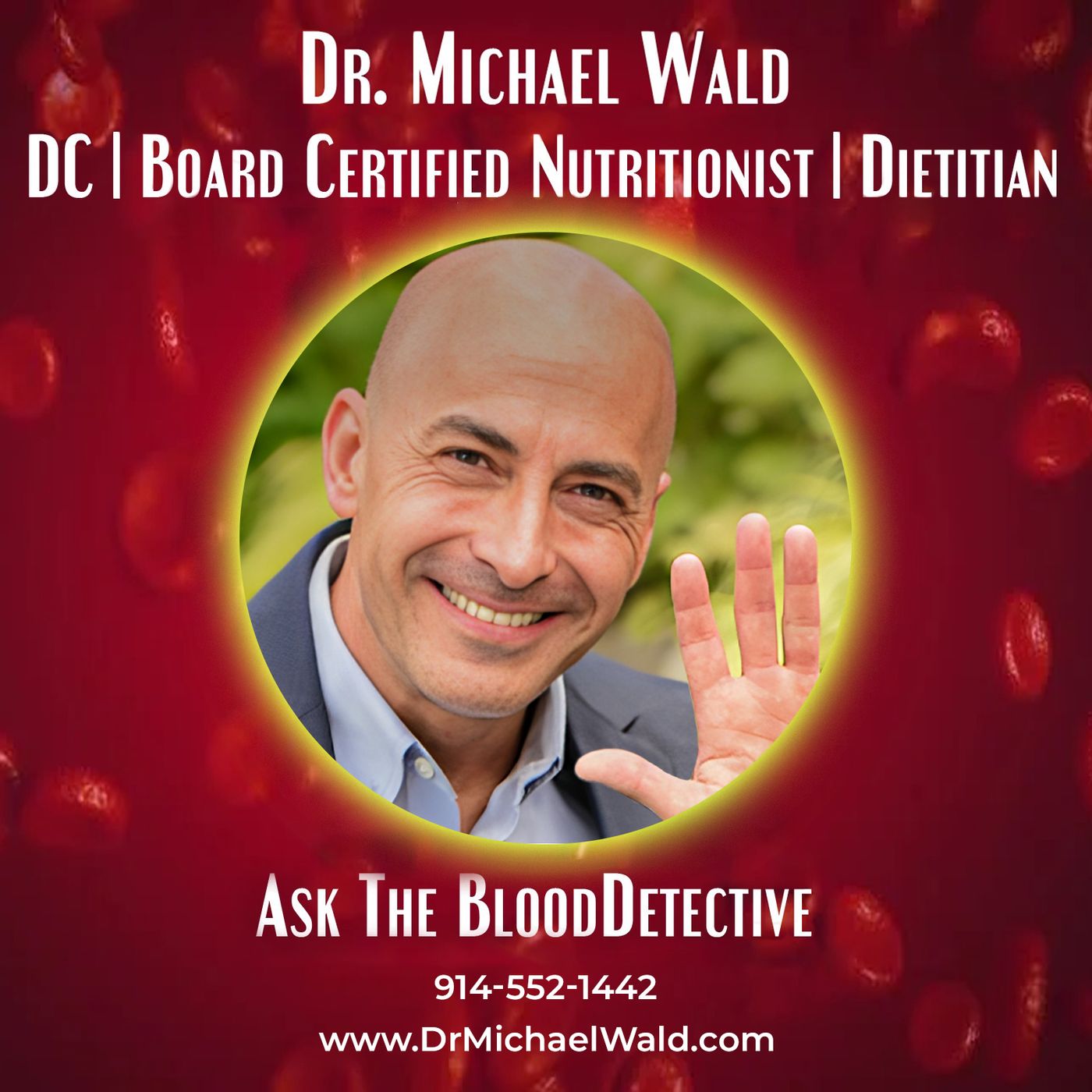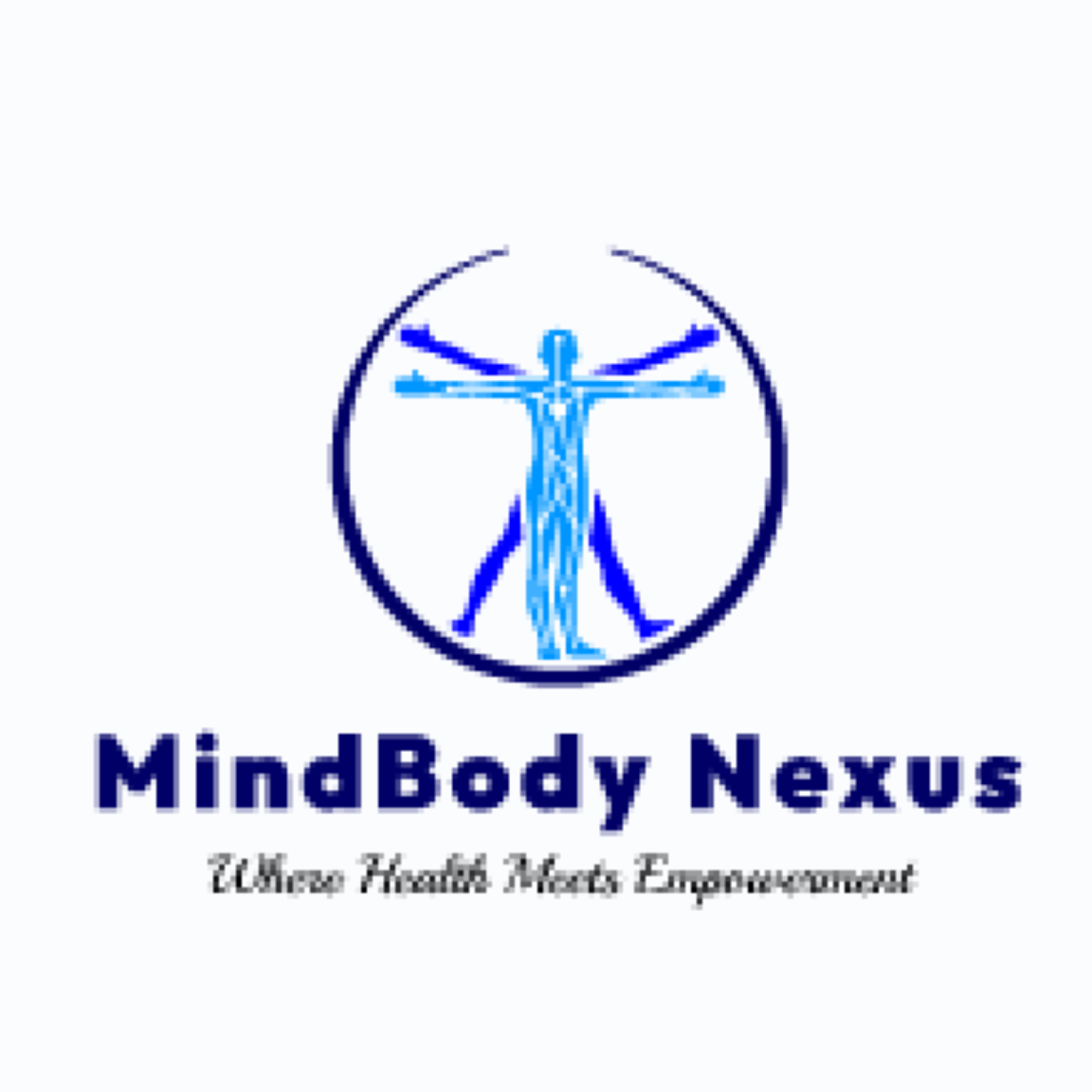Hypertension Hacks: Hypertensive Hacks
Update: 2024-12-27
Description
In this podcast, we delve into the complex factors that contribute to hypertension, including genetic predisposition, diet, stress, and environmental influences. Dr. Wald provides valuable insights into the role of exercise, stress reduction techniques, and the importance of vitamins, minerals, and phytonutrients in managing blood pressure. With his extensive expertise in functional medicine, Dr. Wald offers practical advice on how to address hypertension through a holistic approach that encompasses both conventional medical treatments and natural interventions. Join us as we uncover the latest research and strategies for maintaining optimal blood pressure and overall cardiovascular health. Tune in to Ask the Blood Detective with Dr. Michael Wald for an in-depth exploration of hypertension and learn how to take control of your health through informed choices and proactive lifestyle modifications. Understanding Hypertension: Causes and Prevalence Hypertension can be caused by a variety of factors, including genetics, lifestyle choices, diet, and underlying health conditions. Stress, obesity, excessive salt intake, alcohol consumption, and lack of physical activity are all known contributors to high blood pressure. Additionally, conditions such as diabetes and kidney disease can also play a role in the development of hypertension. In the United States, both men and women are affected by hypertension. According to the Centers for Disease Control and Prevention (CDC), approximately 45.1% of men and 47.8% of women in the US have hypertension. These staggering statistics highlight the widespread impact of this condition on the population. Medications for Hypertension: Effectiveness and Considerations While medications are commonly prescribed to manage hypertension, their effectiveness can vary from person to person. Some individuals may experience significant improvements in their blood pressure levels with medication, while others may require a combination of different medications to achieve optimal control. It is important for individuals with hypertension to work closely with their healthcare providers to find the most suitable medication regimen for their specific needs. Nutritional and Natural Approaches for Managing Hypertension In addition to conventional medications, nutritional and natural approaches have gained attention for their potential benefits in managing hypertension. Lifestyle modifications such as adopting a heart-healthy diet rich in fruits, vegetables, whole grains, and lean proteins can contribute to better blood pressure control. Furthermore, incorporating stress-reducing practices like meditation and regular physical activity into one’s routine can also support overall cardiovascular health. Dr. Michael Wald will explore these topics in detail on today’s episode of The Blood Detective Podcast, providing valuable insights into managing hypertension through a holistic approach.
Top 10 Causes of Hypertension in Both Men and Women Hypertension, or high blood pressure, is a common condition that affects a significant portion of the global population. There are several factors that can contribute to the development of hypertension in both men and women. Here are the top 10 causes of hypertension in both genders, along with the medical treatments for each:
Heavy Metals: Heavy metals such as aluminum, mercury, cadmium, and arsenic can all contribute to hypertension in both men and women. These metals can enter the body through various sources such as contaminated water, food, or air pollution. Once inside the body, they can accumulate in tissues and organs, leading to oxidative stress and inflammation. This can damage blood vessels and disrupt the normal functioning of the cardiovascular system, ultimately leading to high blood pressure. Chronic Subclinical Infection: Chronic subclinical infections, such as chronic periodontitis or chronic urinary tract infections, can also play a role in the development of hypertension. The persistent low-grade inflammation associated with these infections can contribute to endothelial dysfunction and arterial stiffness, both of which are linked to high blood pressure. Malnutrition: Malnutrition, particularly deficiencies in essential nutrients such as potassium, coenzyme Q10, magnesium, omega-3 fats, vitamin D, B-vitamins, and folic acid, can lead to hypertension. Potassium helps regulate blood pressure by balancing the effects of sodium in the body. Coenzyme Q10 is involved in energy production within cells and has been linked to blood pressure regulation. Magnesium plays a role in relaxing blood vessels and regulating blood pressure. Omega-3 fats have anti-inflammatory effects that can benefit cardiovascular health. Vitamin D deficiency has been associated with an increased risk of hypertension. B-vitamins and folic acid are involved in processes related to cardiovascular health. Herbs and Phytonutrients: Certain herbs and phytonutrients have been implicated in affecting blood pressure levels. For example, licorice root extract has been associated with hypertension due to its impact on aldosterone activity. Other herbs and phytonutrients may have either positive or negative effects on blood pressure regulation depending on their specific properties and interactions with the body. In summary, heavy metal exposure, chronic subclinical infections, malnutrition (including deficiencies in potassium, coenzyme Q10, magnesium, omega-3 fats, vitamin D, B-vitamins, and folic acid), as well as certain herbs and phytonutrients can all contribute to the development of hypertension in both men and women.
10 Lifestyle Improvements to Lower Blood Pressure
Top 10 Causes of Hypertension in Both Men and Women Hypertension, or high blood pressure, is a common condition that affects a significant portion of the global population. There are several factors that can contribute to the development of hypertension in both men and women. Here are the top 10 causes of hypertension in both genders, along with the medical treatments for each:
- Obesity: Excess body weight, particularly around the waist, is a major risk factor for hypertension. The accumulation of fat tissue can lead to increased resistance to insulin and elevated levels of certain hormones, which can contribute to high blood pressure.
Medical Treatment: Weight loss through a combination of dietary changes, regular physical activity, and in some cases, medication prescribed by a healthcare professional. - Sedentary Lifestyle: Lack of physical activity and exercise can lead to weight gain and an increased risk of developing hypertension.
Medical Treatment: Regular physical activity and exercise routines tailored to individual needs and capabilities. - High Salt Intake: Consuming too much salt can lead to fluid retention and an increase in blood pressure.
Medical Treatment: Dietary modifications to reduce salt intake, as well as medications that help the body excrete excess sodium. - Stress: Chronic stress can contribute to hypertension by causing the body to release hormones that constrict blood vessels and increase heart rate.
Medical Treatment: Stress management techniques such as meditation, deep breathing exercises, and counseling. In some cases, medications may be prescribed to manage stress-related symptoms. - Smoking: Tobacco use and exposure to secondhand smoke can damage blood vessels and raise blood pressure.
Medical Treatment: Smoking cessation programs, nicotine replacement therapy, and medications to help individuals quit smoking. - Excessive Alcohol Consumption: Heavy drinking can raise blood pressure over time and also reduce the effectiveness of antihypertensive medications.
Medical Treatment: Limiting alcohol consumption or abstaining from alcohol altogether, as well as seeking support through counseling or support groups if needed. - Genetics: Family history plays a significant role in the development of hypertension. Individuals with a family history of high blood pressure are at an increased risk themselves.
Medical Treatment: Close monitoring of blood pressure levels and personalized treatment plans based on individual risk factors and health history. - Chronic Kidney Disease: Impaired kidney function can lead to an imbalance of fluids and electrolytes in the body, contributing to hypertension.
Medical Treatment: Management of underlying kidney disease through medications, dietary changes, and in some cases, dialysis or kidney transplant. - Sleep Apnea: This sleep disorder is associated with episodes of interrupted breathing during sleep, which can lead to hypertension due to the body’s response to low oxygen levels.
Medical Treatment: Continuous positive airway pressure (CPAP) therapy is often used to treat sleep apnea and may help lower blood pressure as a result. - Diabetes: Uncontrolled diabetes can damage blood vessels and lead to complications such as hypertension.
Medical Treatment: Tight control of blood sugar levels through medication, dietary management, regular monitoring, and lifestyle modifications.
Heavy Metals: Heavy metals such as aluminum, mercury, cadmium, and arsenic can all contribute to hypertension in both men and women. These metals can enter the body through various sources such as contaminated water, food, or air pollution. Once inside the body, they can accumulate in tissues and organs, leading to oxidative stress and inflammation. This can damage blood vessels and disrupt the normal functioning of the cardiovascular system, ultimately leading to high blood pressure. Chronic Subclinical Infection: Chronic subclinical infections, such as chronic periodontitis or chronic urinary tract infections, can also play a role in the development of hypertension. The persistent low-grade inflammation associated with these infections can contribute to endothelial dysfunction and arterial stiffness, both of which are linked to high blood pressure. Malnutrition: Malnutrition, particularly deficiencies in essential nutrients such as potassium, coenzyme Q10, magnesium, omega-3 fats, vitamin D, B-vitamins, and folic acid, can lead to hypertension. Potassium helps regulate blood pressure by balancing the effects of sodium in the body. Coenzyme Q10 is involved in energy production within cells and has been linked to blood pressure regulation. Magnesium plays a role in relaxing blood vessels and regulating blood pressure. Omega-3 fats have anti-inflammatory effects that can benefit cardiovascular health. Vitamin D deficiency has been associated with an increased risk of hypertension. B-vitamins and folic acid are involved in processes related to cardiovascular health. Herbs and Phytonutrients: Certain herbs and phytonutrients have been implicated in affecting blood pressure levels. For example, licorice root extract has been associated with hypertension due to its impact on aldosterone activity. Other herbs and phytonutrients may have either positive or negative effects on blood pressure regulation depending on their specific properties and interactions with the body. In summary, heavy metal exposure, chronic subclinical infections, malnutrition (including deficiencies in potassium, coenzyme Q10, magnesium, omega-3 fats, vitamin D, B-vitamins, and folic acid), as well as certain herbs and phytonutrients can all contribute to the development of hypertension in both men and women.
10 Lifestyle Improvements to Lower Blood Pressure
- Healthy Diet: Consuming a diet rich in fruits, vegetables, whole grains, and lean proteins can help lower blood pressure. Limiting sodium, saturated fats, and added sugars is also crucial. Individuals should focus on foods high in potassium, magnesium, and calcium as they have been shown to help regulate blood pressure.
- Regular Exercise: Aerobic and Anaerobic Exercises to Reduce Blood Pressure:
- High blood pressure, also known as hypertension, is a common health issue that can lead to serious complications such as heart disease and stroke. Exercise is an effective way to help reduce blood pressure, and both aerobic and anaerobi
Episode: http
Comments
Top Podcasts
The Best New Comedy Podcast Right Now – June 2024The Best News Podcast Right Now – June 2024The Best New Business Podcast Right Now – June 2024The Best New Sports Podcast Right Now – June 2024The Best New True Crime Podcast Right Now – June 2024The Best New Joe Rogan Experience Podcast Right Now – June 20The Best New Dan Bongino Show Podcast Right Now – June 20The Best New Mark Levin Podcast – June 2024
In Channel























